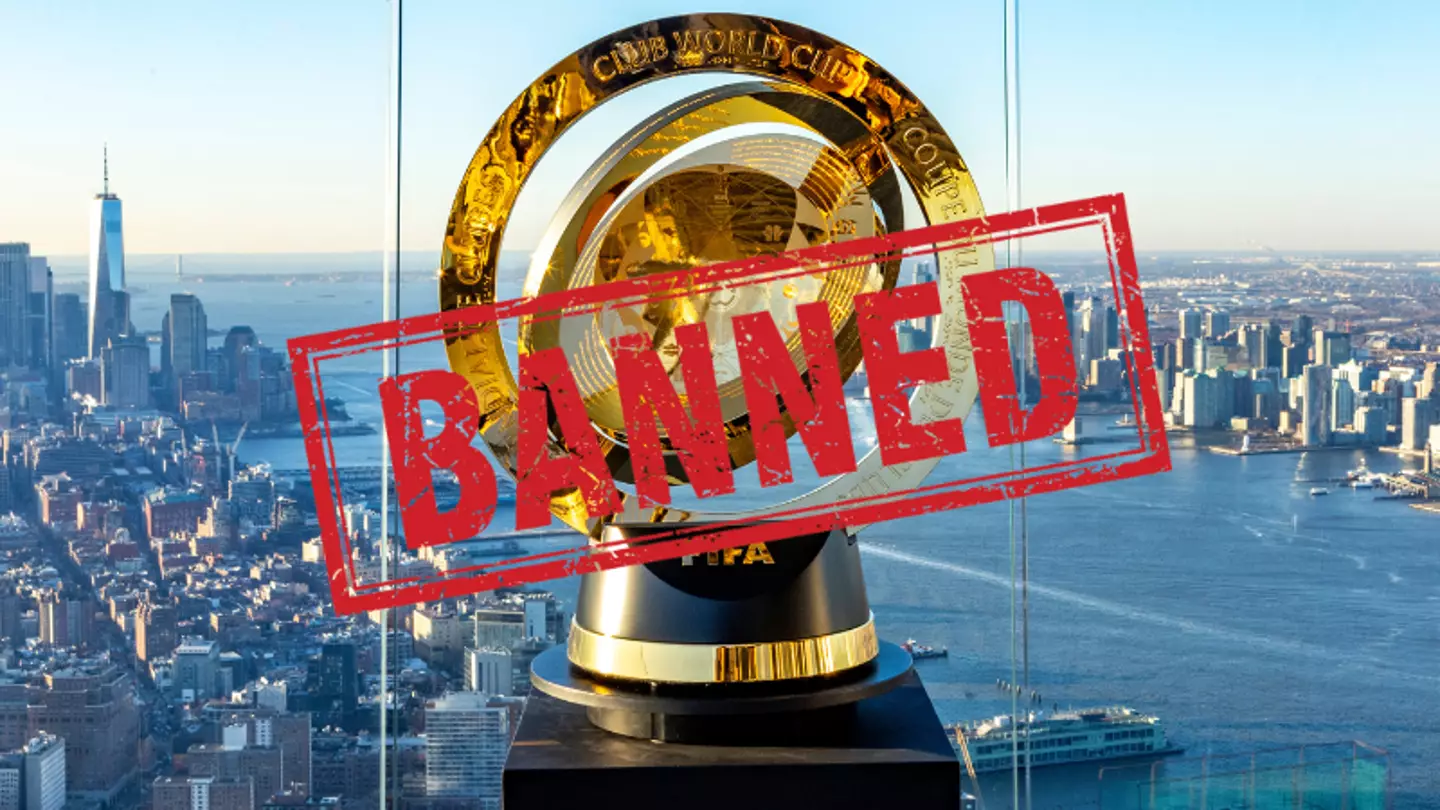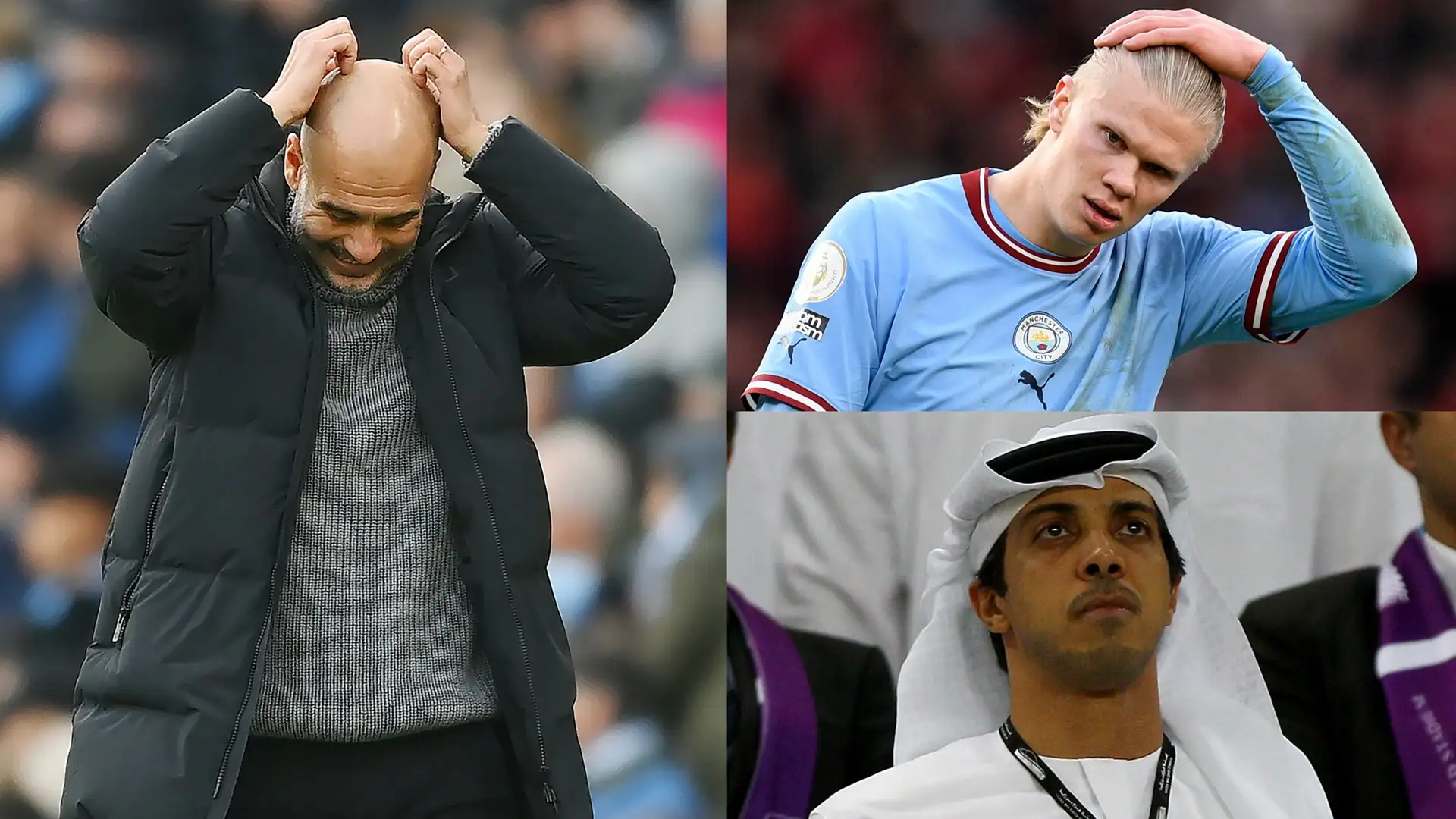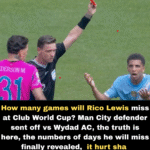Manchester City suffer a blow as Rico Lewis is suspended for two more FIFA Club World Cup matches

The FIFA Club World Cup has delivered its first major disciplinary controversy, and Manchester City find themselves at the center of it. What initially appeared to be a routine one-match suspension for young defender Rico Lewis has escalated into a significant setback for Pep Guardiola’s side, with the England international now facing an extended ban that will severely impact City’s tournament ambitions.
The controversy began during Manchester City’s opening Group G fixture against Moroccan champions Wydad AC, a match that was expected to be a straightforward victory for the Premier League giants. As the game entered its latter stages with City comfortably ahead, a moment of recklessness from Rico Lewis would overshadow what should have been a routine group stage win.
The incident occurred when Lewis, operating in his familiar right-back position, engaged in what appeared to be a standard defensive challenge on Wydad AC’s Samuel Obeng. The initial contact seemed legitimate, with Lewis successfully winning the ball in the tackle. However, it was the follow-through that would prove costly for both the player and his team. As Lewis completed his challenge, his momentum carried him forward, resulting in his boot making contact with Obeng’s face.
The referee’s decision to brandish a red card was met with immediate protests from the Manchester City bench and players. From City’s perspective, the challenge appeared to be a genuine attempt to win the ball, which Lewis had successfully achieved. The fact that the dangerous contact occurred in the follow-through, rather than as part of the initial challenge, led many observers to question whether the punishment fit the crime.
Initial Reactions and Perceived Injustice
The immediate aftermath of Lewis’s dismissal saw widespread debate about the harshness of the red card. Manchester City supporters, players, and coaching staff were visibly frustrated by what they perceived to be an overly severe interpretation of the rules. The young defender himself appeared shocked by the decision, having clearly won the ball cleanly before the unfortunate follow-through.
Many football analysts and commentators initially sided with Manchester City’s interpretation of events. The consensus seemed to be that while Lewis’s challenge was certainly careless and worthy of punishment, the intent was clearly to win the ball rather than to harm his opponent. This distinction between malicious intent and unfortunate consequence has long been a gray area in football’s disciplinary procedures.
The timing of the incident also added to the frustration surrounding the decision. With Manchester City already in control of the match and Lewis playing what had been an exemplary game up to that point, the red card seemed to be a case of poor judgment rather than deliberate foul play. For a young player who had been one of City’s standout performers in recent months, the dismissal was particularly disappointing.
The One-Match Suspension Expectation
Following the red card against Wydad AC, Manchester City and Rico Lewis prepared for what seemed like a standard one-match suspension. In most football competitions, a straight red card for a challenge deemed dangerous but not malicious typically results in a single-game ban. This would have meant Lewis missing City’s subsequent group stage match against Al Ain, with the expectation that he would be available for selection for the crucial fixtures that would follow.
The anticipated suspension seemed manageable from Manchester City’s perspective. While losing Lewis for any match is significant given his importance to Guardiola’s tactical setup, missing the Al Ain fixture wouldn’t have been catastrophic. City possessed sufficient depth in their squad to cover his absence, and the match against Al Ain was viewed as another routine group stage encounter that the team should navigate successfully regardless of personnel changes.
Manchester City’s coaching staff began preparing alternative tactical arrangements for the Al Ain match, likely considering options such as deploying Josko Gvardiol at right-back, utilizing the versatility of Matheus Nunes, or giving an opportunity to one of their younger defenders. The general expectation was that Lewis would serve his suspension, learn from the experience, and return refreshed for the more challenging fixtures ahead.
FIFA’s Disciplinary Committee Decision
However, Manchester City’s plans were thrown into disarray when FIFA’s disciplinary committee announced their verdict on the Lewis incident. Rather than the expected one-match suspension, the committee determined that Lewis’s challenge constituted “serious foul play,” a classification that carries much more severe consequences under FIFA’s disciplinary regulations.
The decision to escalate the suspension was based on the committee’s assessment that the challenge posed a significant danger to the opponent, regardless of Lewis’s intent to play the ball. Under FIFA’s current guidelines, serious foul play is defined as any challenge that endangers the safety of an opponent or uses excessive force or brutality. The fact that Lewis’s boot made contact with Obeng’s face, even inadvertently, was deemed sufficient to warrant the more serious charge.
Paul Hirst of The Times broke the news via social media, reporting that FIFA’s disciplinary committee had extended Lewis’s suspension to cover two additional FIFA Club World Cup matches. This meant that instead of missing just the Al Ain fixture, Lewis would also be unavailable for Manchester City’s upcoming clash with Italian giants Juventus and their potential Round of 16 encounter.
Impact on Manchester City’s Tournament Strategy
The extended suspension represents a significant blow to Manchester City’s FIFA Club World Cup campaign. Rico Lewis had established himself as a crucial component of Pep Guardiola’s tactical system, particularly in the right-back position where his pace, technical ability, and understanding of City’s complex positional play made him virtually irreplaceable.
Lewis’s absence will be felt most acutely in City’s upcoming fixture against Juventus, a match that was already identified as one of the tournament’s most challenging group stage encounters. The Italian club, with their rich European pedigree and tactical sophistication, represent exactly the type of opponent where Lewis’s defensive solidity and attacking contribution would have been most valuable.
The suspension also extends to Manchester City’s Round of 16 tie, assuming they progress from the group stage as expected. This is particularly frustrating as the knockout rounds are where the tournament’s intensity and tactical complexity reach their peak. Having a key player unavailable for such crucial fixtures could prove to be the difference between tournament success and early elimination.
From a tactical perspective, Guardiola will need to significantly adjust his approach to accommodate Lewis’s absence. The young defender’s unique skill set – combining defensive reliability with the ability to contribute in attacking phases – cannot be easily replicated by other squad members. This may force City to adopt a more conservative approach or rely more heavily on other players to provide the attacking width that Lewis typically offers from the right-back position.
Alternative Options and Squad Depth
Despite the setback, Manchester City’s extensive squad depth provides Guardiola with several options to fill the void left by Lewis’s suspension. The most likely candidates to step into the right-back role include Matheus Nunes and Abdukodir Khusanov, both of whom offer different qualities and tactical approaches.
Matheus Nunes, the Portuguese midfielder who joined City from Wolves, represents an intriguing option for the right-back position. His technical ability, pace, and comfort on the ball align well with Guardiola’s requirements for full-backs in his system. Nunes has previously demonstrated his versatility by playing in multiple positions, and his attacking instincts could actually provide City with a different dimension in wide areas.
However, Nunes’s lack of extensive experience in defensive positions could be a concern against high-quality opposition. His positioning and decision-making in defensive situations may not be as refined as Lewis’s, potentially leaving City vulnerable to quick counter-attacks or well-organized attacking moves down their right flank.
Abdukodir Khusanov presents another option, though the young defender is less proven at the highest level. His inclusion in City’s FIFA Club World Cup squad suggests that Guardiola has confidence in his abilities, but asking him to perform in such high-stakes matches against elite opposition would represent a significant step up in his development.
The coaching staff may also consider more radical tactical adjustments, such as switching to a three-center-back system that could accommodate different personnel arrangements. This would allow Guardiola to utilize players like Josko Gvardiol in more familiar roles while still maintaining the team’s attacking threat through wing-backs or advanced midfielders.
The Broader Implications for Young Players
Rico Lewis’s extended suspension highlights the precarious position that young players often find themselves in when competing at the highest level of football. Despite his talent and recent impressive performances, Lewis now faces the reality that one moment of poor judgment – even without malicious intent – can have significant consequences for both his individual development and his team’s ambitions.
The incident serves as a reminder of the fine margins that exist in elite football, where the difference between a well-timed tackle and serious foul play can be measured in milliseconds and centimeters. For young players like Lewis, who are still developing their decision-making abilities under intense pressure, such experiences can be both devastating and educational.
The psychological impact of the extended suspension cannot be underestimated. Lewis must now watch from the sidelines as his teammates compete in some of the most important matches of the season, knowing that his absence could potentially impact their chances of success. Managing this frustration and maintaining focus for a potential return in the quarter-finals will be crucial for his continued development.
FIFA’s Disciplinary Consistency
The Lewis case also raises questions about the consistency of FIFA’s disciplinary procedures across different competitions and contexts. The escalation from a standard red card to a serious foul play charge represents a significant interpretation of the incident, one that many observers continue to view as overly harsh.
The decision sets a precedent for how similar challenges will be assessed in future FIFA competitions. Players and coaches will now be aware that even challenges where the ball is won cleanly can result in extended suspensions if the follow-through is deemed dangerous. This may lead to more cautious approaches in defensive situations, potentially impacting the intensity and competitiveness of matches.
The timing of FIFA’s decision also raises concerns about the appeals process and the speed with which disciplinary matters are resolved. With tournament football operating on compressed schedules, players and teams have limited opportunities to challenge decisions or seek clarification on disciplinary matters.
Looking Ahead: Quarter-Final Hopes
For Rico Lewis to have any chance of playing again in this FIFA Club World Cup, Manchester City must successfully navigate their way to the quarter-final stage. This adds an extra layer of pressure to City’s remaining group stage fixtures and their Round of 16 encounter, as the team knows that their young defender’s tournament fate depends entirely on their collective success.
The prospect of Lewis returning for a potential quarter-final also provides motivation for both the player and the team. Rather than viewing the suspension as a tournament-ending setback, City can frame it as an opportunity for Lewis to return fresh and determined for the business end of the competition.
However, the reality is that missing such crucial matches in the early stages of the tournament could prove decisive in determining City’s overall success. The tactical adjustments forced by Lewis’s absence, combined with the additional pressure on other squad members to step up, may create vulnerabilities that more experienced opponents can exploit.
Conclusion: A Learning Experience with High Stakes
Rico Lewis’s extended FIFA Club World Cup suspension represents one of those pivotal moments that can define both individual careers and team tournaments. What began as a seemingly routine group stage fixture against Wydad AC has evolved into a significant test of Manchester City’s squad depth and tactical flexibility.
The harsh reality of elite football is that moments of poor judgment, regardless of intent, can have far-reaching consequences. For Lewis, this suspension serves as a cruel but potentially valuable learning experience about the fine margins that exist at the highest level of the game. His response to this setback, both in terms of his immediate support for his teammates and his preparation for a potential return, will be crucial for his continued development as a player.
For Manchester City, the suspension provides an opportunity to demonstrate the squad depth and tactical adaptability that have been hallmarks of their success under Pep Guardiola. The performances of players like Matheus Nunes and Abdukodir Khusanov in Lewis’s absence could prove crucial not only for this tournament but for the remainder of the season.
Ultimately, the Rico Lewis suspension saga serves as a reminder that in football, as in life, single moments can have profound consequences. How both the player and the team respond to this adversity may well determine not only their FIFA Club World Cup fate but also their character and resilience in the face of unexpected challenges.















